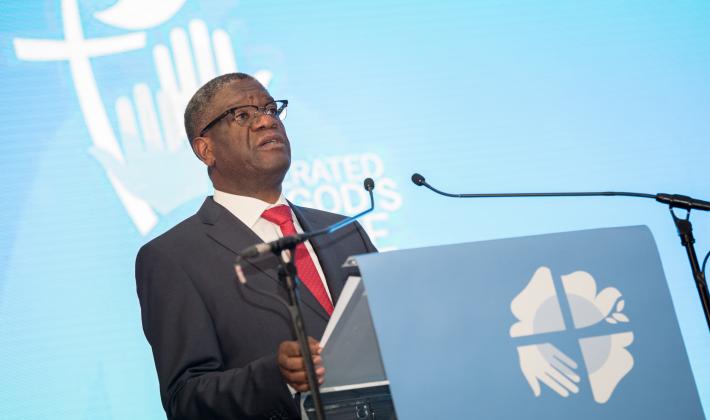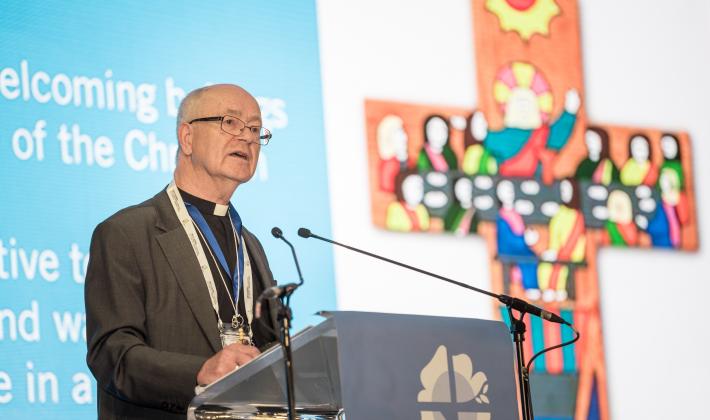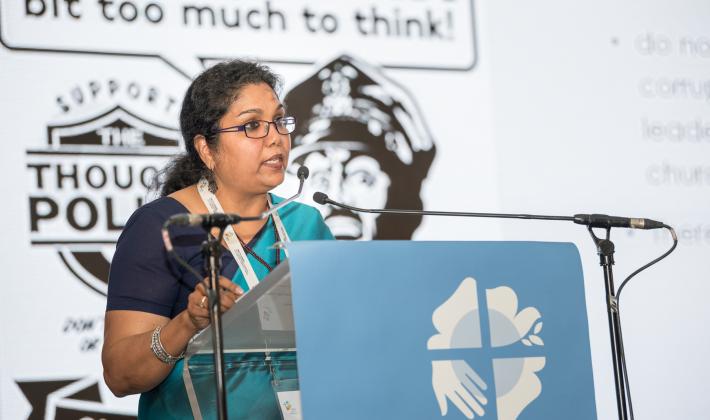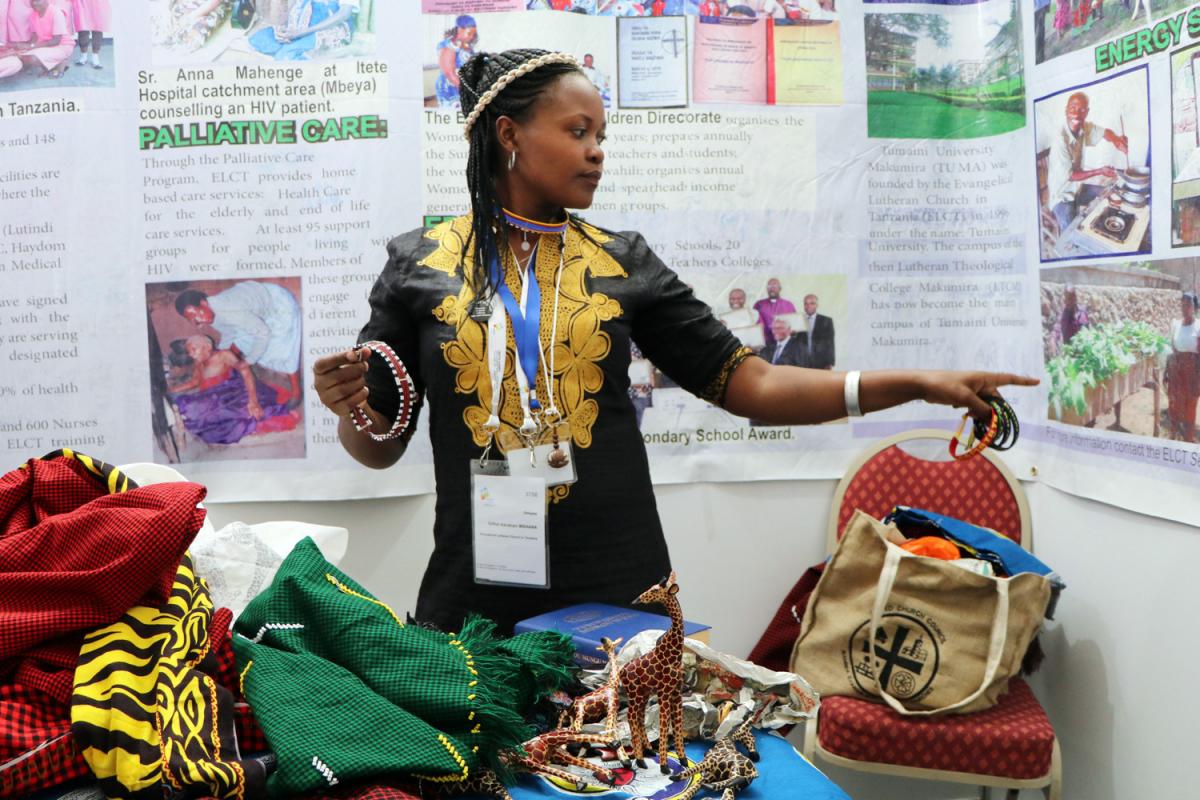
The exhibition Omatala at the Twelfth Lutheran World Federation (LWF) Assembly, showing cultural items from the seven continents of the world, has started. The LWF Assembly attendees are expected to participate in the Omatala from May 11 to 14 at the Safari Hotel in Windhoek, Namibia. Exhibition participants include member churches, related organizations and partners of the Lutheran World Federation.
Omatala means “market place” in Oshiwambo, a language used in the north of Namibia. David Cooke, the Omatala custodian says that this Omatala is an expression of the global communion that was designed not only for transactions but also to provide assembly participants a space for social encounters and interactions where they can exchange ideas. “It’s more than just a tent but a space for exhibits, workshops, campaigns and storytelling. We shall have eighteen stories shared by several participants,” Cooke says. He notes that the stories are life changing. “Our first story is about how a church in Australia is growing bigger and stronger due to the existence of refugees from South Sudan and Burundi among other countries who have been welcomed by both the country and church,” he adds.
Some of the materials for the Omatala exhibition include books, displays, videos and local craft demonstrations.
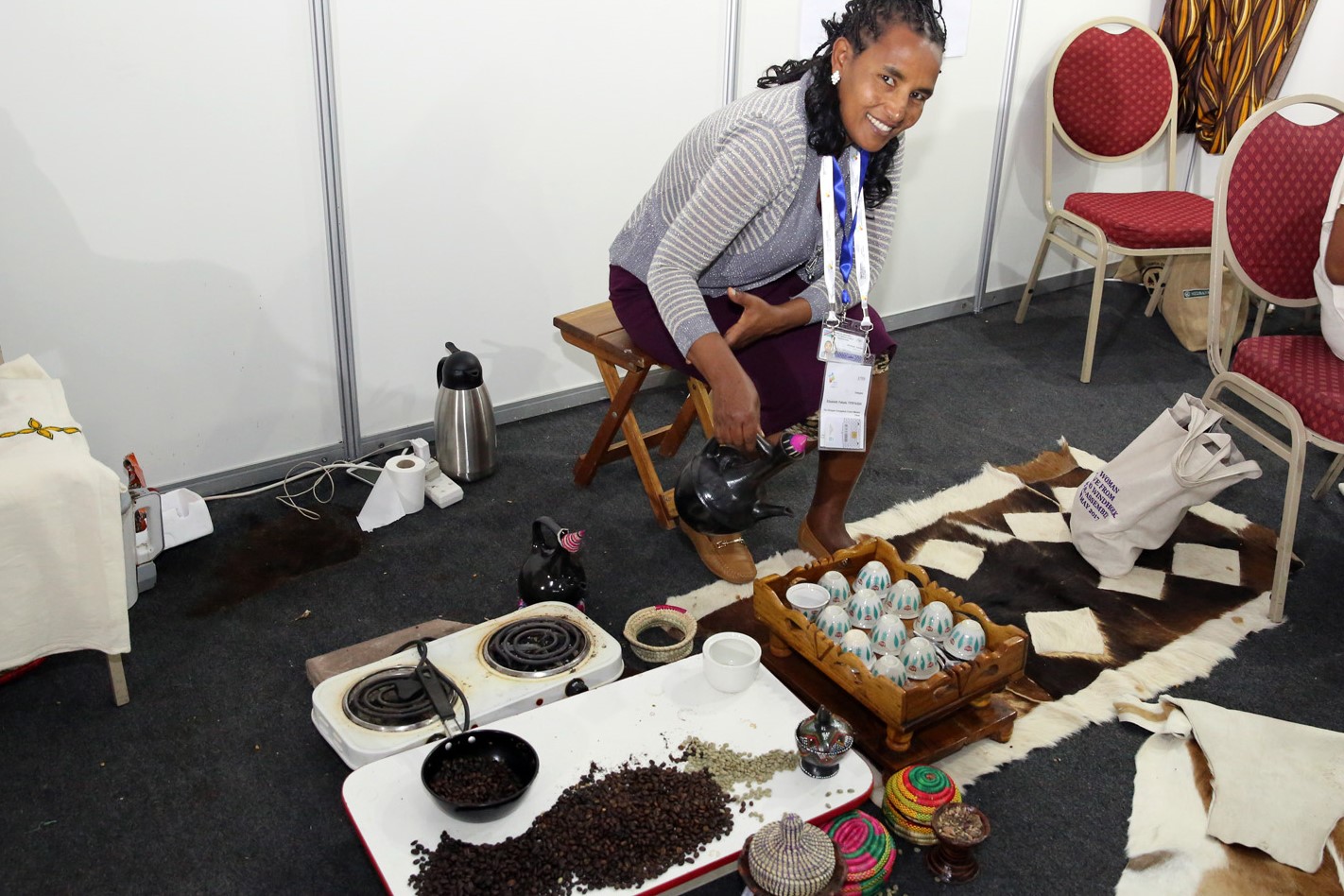
Cooke says the Omatala organizing committee looks forward to people having fun, sharing ideas, learning, getting inspired, as well as getting a diverse sense of the global communion. “We have a church from all regions—one from Asia, North America, Central America, Africa and Europe,” he adds.
The exhibits have almost everything
The participants also have various aims for participating in the Omatala at the Twelfth LWF Assembly.
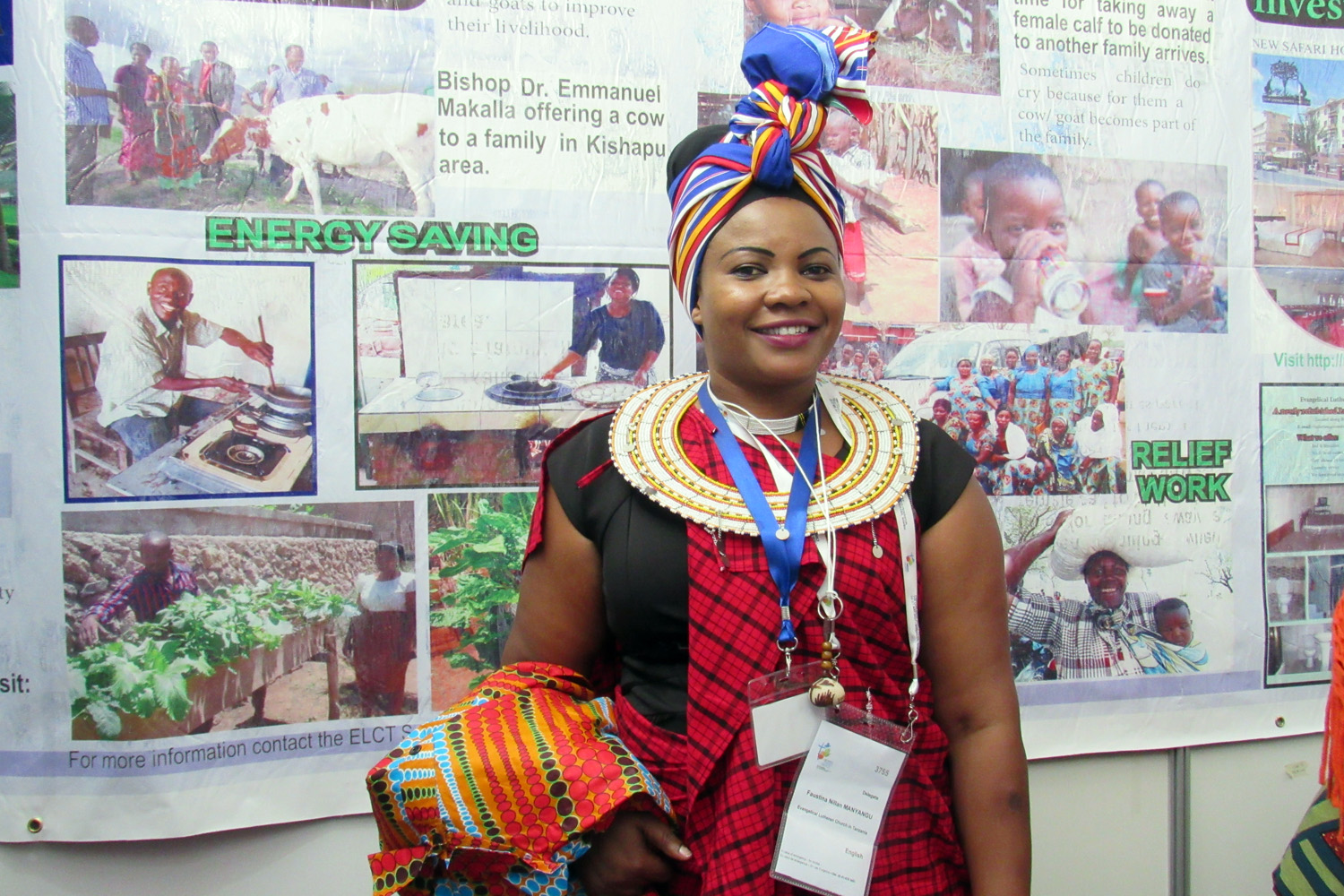
Faustina Nillan Manyangu, the Director for women and children in the Evangelical Lutheran Church in Tanzania says she is here to demonstrate what the women attached to her church are doing to improve their livelihoods. “Through the Omatala, we hope to create market linkages for the women beneficiaries of the Vitenge Project implemented by our church,” says Manyangu who is displaying and selling crafts, clothes and jewelry made by the women of the project.
Just like Manyangu, Reverend Tawanda Chovere from the Evangelical Lutheran Church in Zimbabwe (ELCZ) is also displaying food, crafts, and published materials about the different livelihood and health projects implemented by ELCZ. “These ground nuts and honey were made by some of the marginalized groups ELCZ supports and the money made from the sales will be sent back to them,” he says. Reverend Chovere notes that other than transactions he has attended the Omatala to share ideas and learn from other people and projects. “I hope to improve our projects with knowledge I expect to get from my interactions and discussions with different groups of people I am going to meet,” he adds.
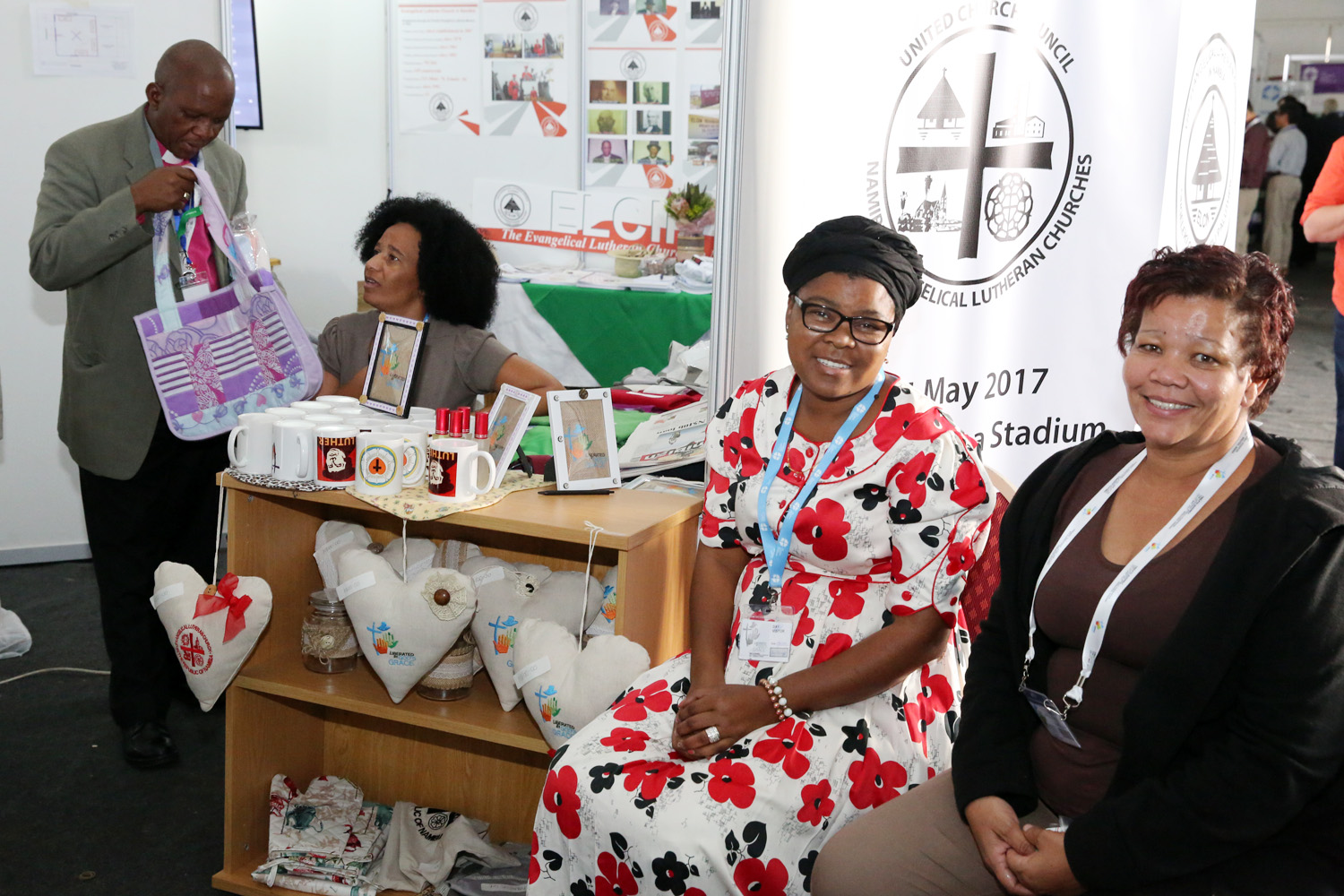
Women are also represented at the Omatala by the Welwitschia Mirabilis Women’s group with one delegate from each of the 145 member churches of the LWF. “We were nominated by our bishops to come and be a voice for the voiceless women in our communities. We shall discuss the challenges and potential of women with the Omatala participants,” says Aletta !Noabes, chair of the Welwitschia Mirabilis group.
For their cause, the women have displayed and are sharing the Gender Justice Policy handbook and information about women who have played big roles in the Lutheran church and history, like Sister Philliane Dax Stephanus who advocates for women’s rights in the Evangelical Lutheran Church in the Republic of Namibia and Martin Luther’s wife, Katharina von Bora.
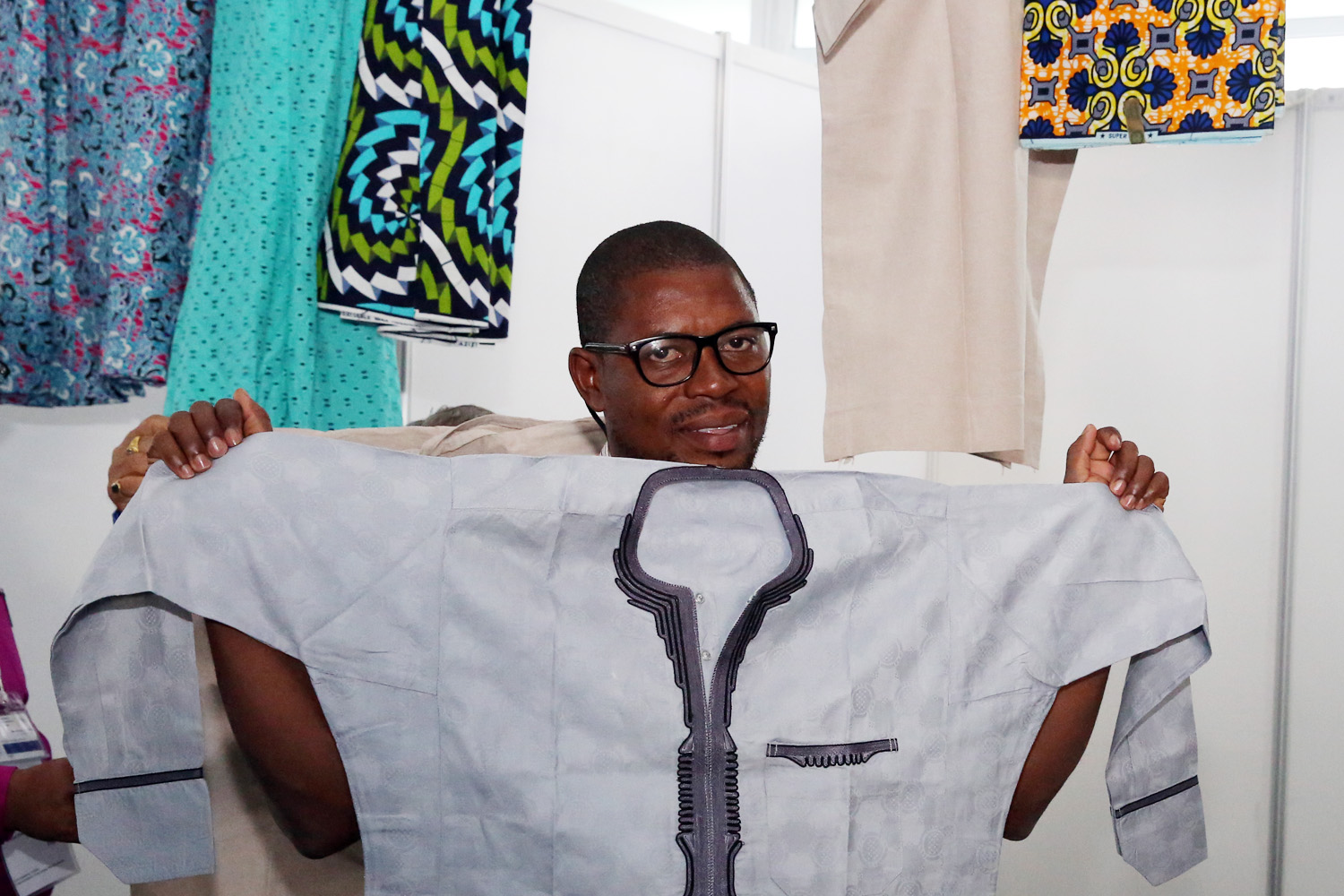
The group is also displaying and selling different materials like animal skin mats, foodstuff, crafts and much more. “We are displaying this to transfer skills, promote our work and ideas, empower women and also improve on our livelihoods,” !Noabes adds.
LWF/Shamim Nalubega

